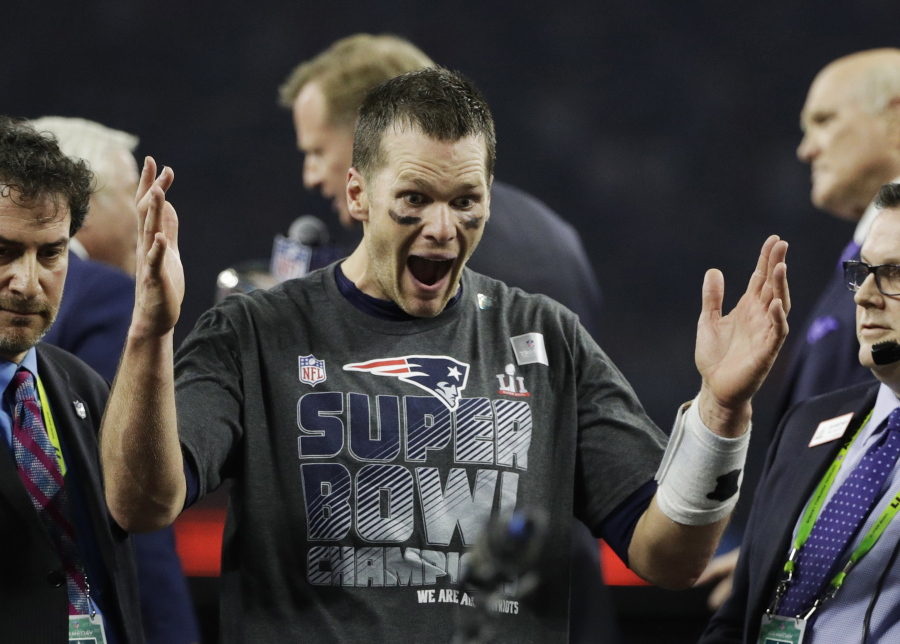Lightning continues to strike the world of sports.
The New England Patriots overcoming a 25-point deficit to win the Super Bowl? No way.
The Chicago Cubs and Cleveland Cavaliers both overcoming a 3-1 deficit to bring championships to those long-suffering franchises? That was silly talk.
Let’s add Clemson’s improbable rally over Alabama for the college football national title.
And while we’re at it, throw in Donald Trump’s upset win.
Now you’re talking about a nine-month period that made a mockery of statistical probabilities.
To say that lightning struck is a cliche. But it’s the most accurate way to describe what we’ve seen over the past year.
How so?
The odds of a random person being struck by lightning in any given year are 1 in 960,000.
The odds of the Patriots’ comeback, the Cavs and Cubs rallying from 3-1 down, Clemson erasing a 10-point deficit in the fourth quarter and Trump’s win all happening were about the same — 1 in 999,936.
How do we come to that probability? Let me explain.
According to ESPN Stats and Information, New England’s lowest probability of winning Sunday’s Super Bowl wasn’t when Atlanta took a 28-3 lead early in the third quarter. It actually came when the Patriots had to settle for a field goal to pull within 28-12 with 9:44 left.
At that point, according to ESPN, New England had just a 0.4 percent chance to win.
The Cubs, by comparison, had it easy. Down 3-1 against an evenly matched Indians team, Chicago had a 12.5 percent chance of winning the World Series. That’s equal to a coin flip coming up heads three consecutive times.
The Cavs had a tougher task. Home court advantage in basketball is more meaningful than in baseball. So ESPN Stats gave Cleveland just a 6 percent chance of winning three straight games, including two on the road, to become the first team to rally from 3-1 down in the NBA Finals.
When Alabama took a 24-14 lead late in the third quarter of the College Football Playoff title game, Clemson had just a 14.1 percent chance of winning, according to ESPN. The Tigers outscored the Tide 21-7 in the fourth quarter.
And since politics has shrouded everything this past year, lets add one more. Most election models gave Trump little chance to win. On Election Day, Hillary Clinton’s probability of winning was as much as 99 percent (Princeton) to 65 percent (FiveThirtyEight). For this, let’s split those extremes and use the New York Times, which gave Clinton an 85-percent probability to win on the morning of Nov. 8.
So there you have five long-shots, ranging from 0.4 percent probability to 15 percent.
The odds of multiple long-shots all coming true grow increasingly long the more you add. In our five long-shots above, the math works out to a 0.000064 percent probability (or 64 in 1 million) of it all coming true.
Or, to put it in Vegas-style odds, all five coming true was a 1 in 999,936 long-shot.
What should we make of this?
We could just say that statistical models are bunk. That cold heartless data doesn’t account for momentum, emotion and other human intangibles that make contests so dramatic.
Or, we could appreciate the rarity of what we’ve seen, knowing that lightning hardly ever strikes twice.
Micah Rice is The Columbian’s Sports Editor. Reach him at 360-735-4548, micah.rice@columbian.com or on Twitter @col_mrice. There is a roughly 97.6 percent chance he will respond.




